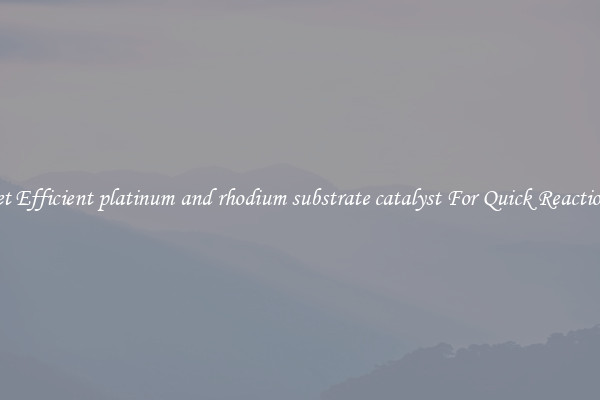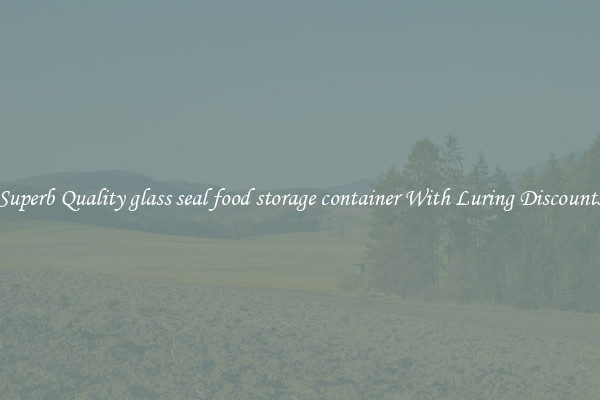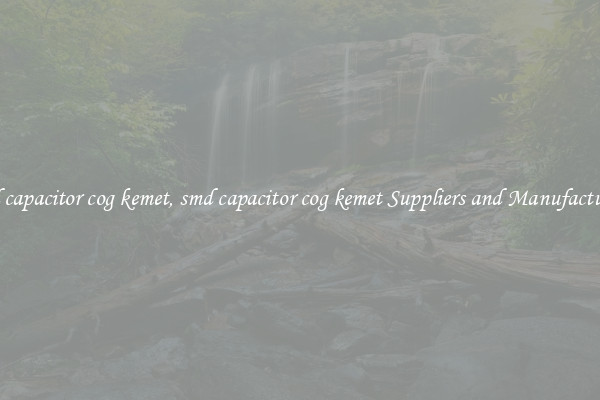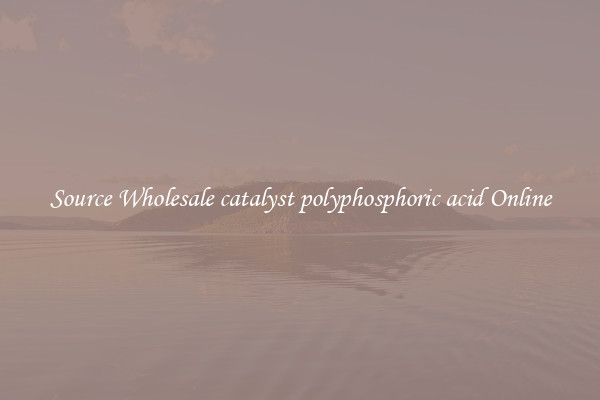Get Efficient platinum and rhodium substrate catalyst For Quick Reactions
Get Efficient Platinum and Rhodium Substrate Catalyst for Quick Reactions

Catalysts play a vital role in speeding up chemical reactions without being consumed in the process. They are widely used in various industries, including automotive, pharmaceuticals, and petrochemicals. Among the most efficient catalysts are those made from platinum and rhodium substrates, which are known for their exceptional performance in promoting quick reactions.
Platinum and rhodium are precious metals that possess unique properties that make them highly suitable for catalytic applications. Platinum, known for its exceptional chemical stability and high melting point, is an excellent catalyst for many reactions. Rhodium, on the other hand, is highly resistant to corrosion and can withstand harsh operating conditions. When combined, these two metals form catalysts with exceptional efficiency and durability.
One of the main advantages of platinum and rhodium substrate catalysts is their ability to promote quick reactions. Their high surface area, combined with their unique electronic structure, allows them to provide more active sites for reactant molecules to bind. This leads to a higher reaction rate and shorter reaction time. As a result, these catalysts help improve process efficiency, reduce energy consumption, and increase productivity.
Platinum and rhodium substrate catalysts are widely used in the automotive industry, particularly in the catalytic converters of vehicles. These catalysts help convert harmful gases, such as carbon monoxide, nitrogen oxides, and hydrocarbons, into less harmful substances, such as carbon dioxide, nitrogen, and water vapor. The efficiency of these catalysts in converting pollutants into environmentally friendly substances is crucial in meeting emission regulations and reducing air pollution.
In addition to the automotive industry, platinum and rhodium substrate catalysts are also extensively used in the petrochemical industry. They are essential in various refining processes, such as catalytic cracking, hydrocracking, and isomerization. These catalysts play a vital role in breaking down heavy hydrocarbons, improving fuel quality, and producing valuable petrochemical products.
Moreover, platinum and rhodium substrate catalysts find applications in the pharmaceutical industry. They are used in the synthesis of several important drugs, such as antibiotics, anticancer agents, and cholesterol-lowering medications. The efficiency of these catalysts in promoting specific reactions is crucial in producing pharmaceutical compounds with high purity and yield.
In conclusion, platinum and rhodium substrate catalysts are known for their exceptional efficiency in promoting quick reactions. Their unique properties, such as high surface area, chemical stability, and resistance to corrosion, make them highly suitable for various industrial applications. From the automotive to the petrochemical and pharmaceutical industries, these catalysts play a vital role in improving process efficiency, reducing energy consumption, and producing high-value products. As industries continue to advance, the demand for efficient platinum and rhodium substrate catalysts will only grow, driving research and development efforts to further enhance their performance and sustainability.

View details

View details

View details

View details








